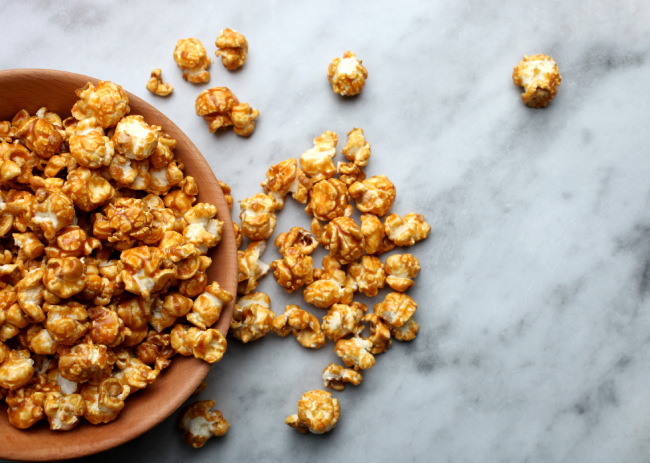Are you a fan of popcorn but wondering how healthy it really is? Look no further than this Ultimate Popcorn Nutrition Guide!
Popcorn is a classic snack that has been enjoyed for centuries, and because of a good reason – it’s delicious, satisfying, and relatively healthy if consumed in moderation.But not all popcorn is created equal, and it’s important to be mindful of the ingredients and preparation methods used to ensure that you’re getting the most out of your snack. That’s understanding why innovative air poppers and stove toppers like Popsmith are so important.
In this ultimate popcorn nutrition guide, we’ll cover everything from the nutrient content of popcorn to tips on healthy preparation, so you can enjoy this tasty snack while staying mindful of your health.
Nutrient Content
Air-popped popcorn is a low-calorie snack, with just 30 calories per cup. Plus a great source of fiber, with about 1 gram of fiber per cup. Fiber is essential for good digestive health and can help you feel full and satisfied. Though popcorn is not a significant source of protein, with just 1 gram per cup. However, if you are looking to boost your protein intake, you can try adding nuts or seeds to your popcorn.
Popcorn is also an excellent source of minerals and vitamins. It contains small amounts of vitamins B6, E, and K, as well as minerals such as magnesium, zinc and potassium. These nutrients are necessary for maintaining good health and can help boost your immune system.
Nutrition Information for One Serving (3 cups):
- Calories: around 90-100
- Carbohydrates: around 20 grams
- Fiber: around 3-4 grams
- Protein: around 3 grams
- Fat: around 1-2 grams
Overall, popcorn can be a healthy snack option when prepared properly and consumed in moderation.
Homemade vs Microwave Bag
Generally, homemade popcorn is generally considered to be a healthier option than microwave popcorn due to its higher quality ingredients and lower calorie and fat content. You have much better control over the ingredients used in your popcorn. Typically, at home, the basics are kernels and butter or oil.
Microwave popcorn, on the other hand, is typically made using pre-packaged bags that contain popcorn kernels, oil, and seasonings. The popcorn is cooked using a microwave, which can result in the formation of harmful chemicals such as perfluorooctanoic acid (PFOA) and diacetyl. These chemicals can be harmful to human health and can increase the risk of certain diseases.
Other Healthy Preparation Tips
To enjoy popcorn as a healthy snack, it’s important to prepare it in the right way. Here are some tips on how to make popcorn a nutritious snack:
- Choose Whole Grain Popcorn: Look for popcorn that is made from whole grains. Whole grain popcorn contains more fiber, protein, and nutrients than popcorn made from refined grains. Check the ingredient list on the packaging to ensure that the popcorn is made from whole grains.
- Use Healthy Oils: If you prefer to use oil to make popcorn, choose an oil such as olive oil, coconut oil, or avocado oil. These oils are high in healthy fats, which can help lower cholesterol levels and reduce the risk of heart disease.
- Add Flavor Without Adding Calories: To add flavor to your popcorn without adding extra calories, try using herbs and spices such as cinnamon, garlic powder, or paprika. You can also try nutritional yeast, which adds a cheesy flavor to your popcorn without the added calories.
- Control Your Serving Size: Popcorn can be a healthy snack option, but it’s important to keep your serving size in check. A typical serving size of popcorn is about 3 cups, which is equivalent to one ounce. Be mindful of your portion sizes to avoid overeating and consuming too many calories.
Healthy Popcorn Toppings
There is an endless combination of healthy flavors to try on your popcorn. For example, instead of using butter try sprinkling nutritional yeast on top for a cheesy, savory flavor with benefits.Add some cayenne pepper or chili powder for a spicy kick. And for dessert, cinnamon or cocoa powder with just a hint of a dark chocolate drizzle make the tastiest treat. Chopped nuts or seeds are the perfect crunchy companion.
Snack Healthier with Popcorn
Remember to consume popcorn in moderation as part of a balanced diet to reap its health benefits. By using an air-popper or healthy oils, adding flavorful herbs and spices, and avoiding pre-packaged popcorn, you can enjoy popcorn as a nutritious and satisfying snack that’s perfect for movie nights, snacking on the go, or as a midday pick-me-up.

